Fight to preserve Chinatown typical of red tape town
Updated: 2013-12-10 11:00
By Chen Weihua (China Daily USA)
|
||||||||
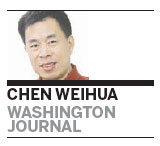
Guan Zhi had run his barber shop on 6th Street near H Street, NW, in Washington DC's Chinatown since early 1998. It was on the second floor of a building that was accessible through a black steel stairway.
However, Guan had to close his Rainbow Barber Shop in October because the property's new owner has more ambitious business plan - another front in a quiet war being waged between developers and city's preservation review board.
Monument Realty has a new plan for the site bordered by H and I Streets and between 6th and 7th Streets - an open-air Asian food market as well as retail and office space. The company reportedly has amassed 14 properties on one of the last blocks in the US capital that is home to some two dozen Chinese and Asian American restaurants and businesses.
On Oct 31, the Historic Preservation Review Board (HPRB), an official body of advisors appointed by the mayor to guide the government and public on preservation matters in DC, turned down Monument's proposal, saying the project did not do enough to preserve buildings that contributed to the Chinese presence in the city, but the developer still decided to push ahead with the massive retail and office project.
Developer Michael Darby, principal of Monument Realty, told China Daily on Monday that he is planning to apply for a project of special merit from the mayor's agent.
Darby said although he is hopeful and does not understand why the board is pushing so hard on this.
"We want to build the building that represents really modern China in relation to the great buildings being built in China," he said, adding that it would enable Chinese businesses there to continue and pass down from generation to generation.
Darby said the board's rules have prevented Chinese businesses from expanding in order to compete with national chain restaurants nearby.
Steve Callcott, a senior preservation planner with the board, said they are scheduled to meet the developer next week to discuss whether they are trying to redesign the project to make it more compliant with the preservation of existing buildings or to go along with the mayor's office.
Calling Chinatown the only designated area of its kind in Washington, DC, Callcott said, "It's DC's policy to encourage the retention of Chinese culture and architecture in the area."
The Chinese American community is also divided on the development, with some believing the revamping offers new opportunities, while others worry that by demolishing some of the buildings in the neighborhood, the Chinese traditional and cultural flavor of the neighborhood will be reduced.
Already, Chinatown in Washington is so much smaller compared to Manhattan's, San Francisco's or Chicago's.
What is now DC Chinatown was once home to mostly German immigrants. Chinese immigrants only began to move into the area in the 1930s after being displaced from the original Chinatown along Pennsylvania Avenue due to the development of the Federal Triangle government office complex.
During its heyday, Chinatown extended from G Street, NW, north to Massachusetts Avenue and from 9th Street east to 5th Street. In 1986, the Metro station in the area was given the name of Gallery Place-Chinatown.
The 2010 census shows that there were 3,000 residents in Chinatown and only 21 percent were Asians, in sharp contrast to 1990 when 66 percent of the residents there were Asians.
Chinese language signage is still everywhere in the Chinatown since it's mandatory under the city regulations. But most signs are for non-Chinese businesses, such as Starbucks, Hooters, Ann Taylor and Urban Outfitters.
In fact, before 1998, Guan had already been operating his barber shop for five years. It was just across the street from the one he just closed. Recalling the days that the current Verizon Center, home venue of the Washington Wizards and several other sports teams, was very much a parking lot and there were many Chinese restaurants and shops in the neighborhood, Guan seemed saddened by the change.
"Chinatown is no longer a town, it's just a corner, and it will disappear in the future, except the Arch," said Guan, referring to the traditional Chinese gate, known as Friendship Arch that stands at H and 7th Streets, NW. The huge arch was erected in 1986 and renovated in 1993 to celebrate the sister city relationship between Washington DC and Beijing.
Now running a temporary barbershop on 6th Street near M, NW, a residential rather than business zone, Guan's business has declined dramatically, although some old clients have followed him to the new place.
Driving both ways on H Street, Friendship Arch is eye-catching from a distance, yet behind the gate, there are only 20 restaurants and businesses that can claim to be Chinese American at the moment.
When the traditional Chinese New Year parade takes place in late January 2014 to usher in the Year of the Horse, the neighborhood might look even more different as several more businesses have ceased to operate due to the proposed construction project.
Standing in his new barber shop with his wife and two children, a daughter and son, Guan said he is still looking forward to returning to the Chinatown neighborhood.
"I will move as soon as I find a place," he said.
Contact the writer at chenweihua@chinadailyusa.com
(China Daily USA 12/10/2013 page2)

 World Cup mascot makes China debut
World Cup mascot makes China debut
 Catering to Chinese viewers a hurdle for Hollywood
Catering to Chinese viewers a hurdle for Hollywood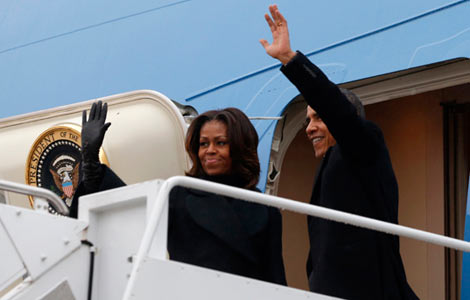
 World's top leaders pay tribute to Mandela
World's top leaders pay tribute to Mandela
 Art students take protest to the mall
Art students take protest to the mall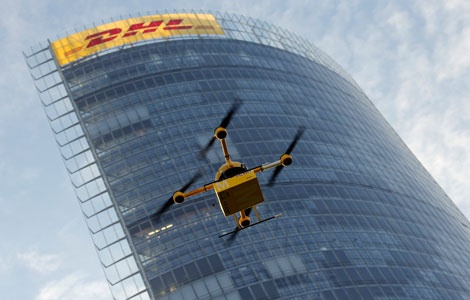
 German DHL testing delivery drones
German DHL testing delivery drones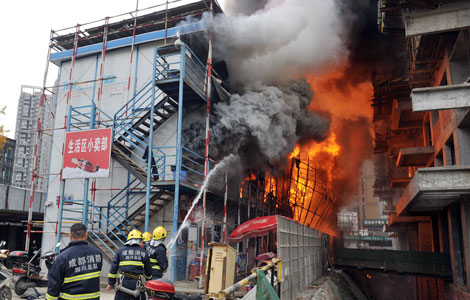
 Fire breaks out at construction site in SW China
Fire breaks out at construction site in SW China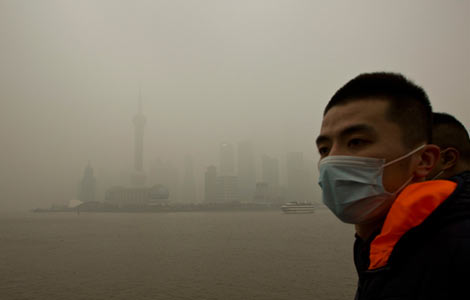
 More emission controls urged
More emission controls urged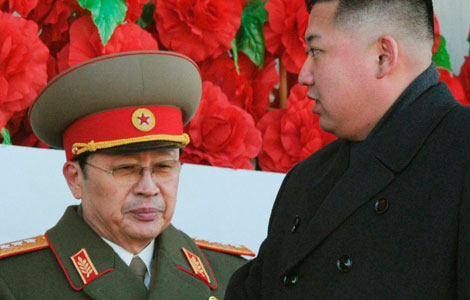
 DPRK leader's uncle stripped of all posts
DPRK leader's uncle stripped of all posts
Most Viewed
Editor's Picks

|

|

|

|

|
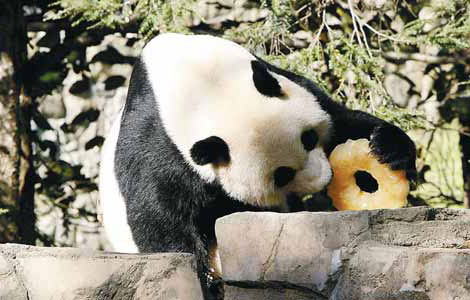
|
Today's Top News
John Kerry to visit Mideast, Vietnam, Philippines
Obama, Bush embark for Mandela memorial
Girl's death spark calls for child services oversight
US urged to change surveillance laws
Japan 'betrays' arms embargo
China opens key economic meeting
Water diversion set to benefit Shandong
GDP growth could hit 7.8% next year
US Weekly

|

|







